Killer Wife in Jewish Law and Lore
The Talmud states that if a woman is twice or thrice widowed, she is prohibited from remarrying because it is presumed that she is a killer wife and that her next husband will also die. This has been applied in post-Talmudic law, but also negated by some halakhic decisors.
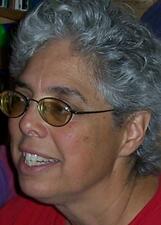
Clare Kinberg
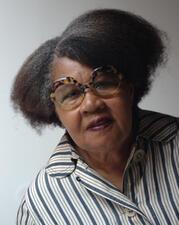
Jamaica Kincaid
Born Elaine Cynthia Potter Richardson, Jamaica Kincaid is a Jewish Afro-Caribbean author. She was sent to the United States from her birthplace in Antigua at the age of sixteen and became a writer while living in the United States.
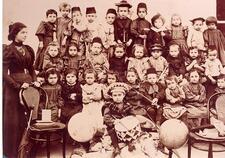
Kindergartens in Palestine: First and Second Aliyah (1882-1914)
Hebrew-language education of the youngest Jewish residents of Palestine was considered key to the continued success of the Zionist movement. The women who taught in these kindergartens, established during the First and Second Aliyah, demonstrated their dedication to the movement and became essential to its success.
Carol Weiss King
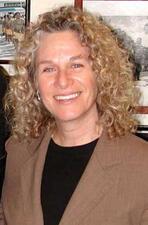
Carole King

Poppy King

Kinnim (Tractate)
Tractate Kinnim (“nest” or “birds in a nest”), the last tractate in Order Kodashim (Holy Things), deals with the smallest type of sacrifice, a pair of turtledoves or young pigeons—one nest, hence the title.
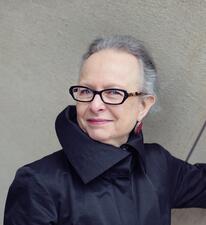
Barbara Kirshenblatt-Gimblett
Barbara Kirshenblatt-Gimblett is an American folklorist who is a scholar of Jewish cultures of Eastern Europe, North America, and Israel, museums, heritage, and tourism, as well as a curator of exhibits and documentarian. She is Chief Curator of the core exhibit of the POLIN Museum of Jewish history in Warsaw.
Ruth Kisch-Arendt
Ruth Kisch-Arendt, an Orthodox Jew, became one of Germany’s foremost performers of lieder (nineteenth–century allegorical poems set to music)through the intense period of anti-Semitism leading up to the Holocaust. After World War II, Kisch-Arendt used her talents to highlight great Jewish composers.
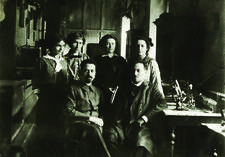
Cecilia Klaften
Cecylia Klaften, a pedagogue and a civic activist from Lvov (Galicia/Eastern Lesser Poland), implemented social reform projects and especially promoted the founding of vocational schools for women in interwar Poland. In the 1920s she was one of the founders of the Jewish Women’s Association and the WIZO Jewish Women’s Organization for Pro-Palestinian Work in Lvov. In the 1930s she was politically active for Lvov’s City Council.
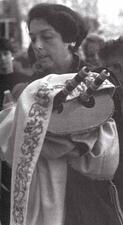
Francine Klagsbrun
Ida Klaus
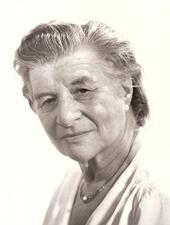
Margot Klausner
Margot Klausner was co-founder and president of Israel’s major film and television studio and co-manager of the Habima Theater. She was an author, film producer, founder of the Israeli Parapsychology Society, publisher of the monthly magazine Mysterious Worlds: A Journal of Parapsychology, and a popular public speaker on theater, film, and the occult in Israel.

Gerda Weissmann Klein
Holocaust survivor Gerda Weissmann Klein has used her experiences to educate countless people through her books, television appearances, and motivational speaking. Among numerous other awards for her work, Klein was appointed to the United States Holocaust Commission by President Clinton in 1997, and in 2011 she was awarded the Presidential Medal of Freedom by President Obama.

Idit Klein

Melanie Klein
Melanie Klein was a pioneer in the psychoanalysis of children and inventor of the “play technique.” She contributed important insights regarding the treatment of individuals suffering from psychosis and personality disorders. Born to a Jewish family in Vienna at the turn of the century, she later lived and practiced in Budapest, Berlin, and London.

Zoë Klein
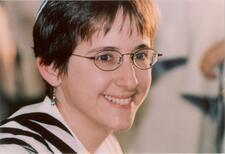
Sharon Kleinbaum
Traute Kleinova
Gertrude “Traute” Kleinová was a Czechoslovakian table tennis player. Noticed at a young age for her athletic ability, she later defeated the reigning world champion in 1935 and went to the World Championships in London. During the war, Kleinová was deported to Theresienstadt and then Auschwitz but she survived and emigrated to the United States.
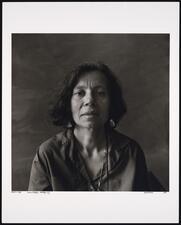
Irena Klepfisz
Irena Klepfisz is a poet whose legacy is key to the history of Jewish, American and lesbian literature. Klepfisz is also a pioneer of the recovery of Jewish and Yiddish women’s writing, to which she has dedicated translations, research, teaching, and activism.
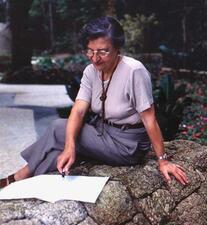
Rosa Grena Kliass
Rosa Kliass is a trailblazer in the field of Brazilian landscape architecture. After graduating from university, Kliass established the first landscape office run by a woman in Brazil. Kliass’ extensive experience in public works, combined with a broad interdisciplinary approach, led her to serve as a consultant to several governmental institutions.
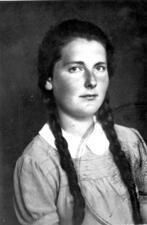
Bronia Klibanski
Bronia (Bronka) Klibanski was one of the heroic Kashariyot (couriers) of the Jewish resistance during the Holocaust. She became the primary kasharit for the Dror Zionist group in 1943, obtaining critical weapons for the Bialystok ghetto revolt, gathering intelligence, rescuing other Jews, and saving the secret archive of the ghetto.
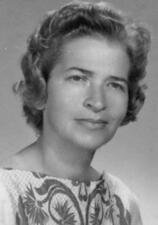
Reizia Cohen Klingberg
Reizia Cohen Klingberg began her career as a teacher, but when she began hearing reports of deportations and disappearances, she returned to occupied Krakow in 1942 and joined the ghetto’s underground movement. The group stole and smuggled weapons and attacked German officers. Despite being betrayed, arrested, and deported, Klingberg survived to be liberated by American soldiers at Auschwitz and subsequently moved to Palestine.
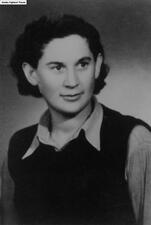
Chajka Klinger
Chajka Klinger, a member of Ha-Shomer ha-Za’ir, was active in the resistance against the Nazis in Bedzin and Warsaw. Her mission was to live, so that she could keep the flame and memory of resistance alive. Her diaries were the first written evidence about the Warsaw Ghetto uprising to escape Nazi Europe.


